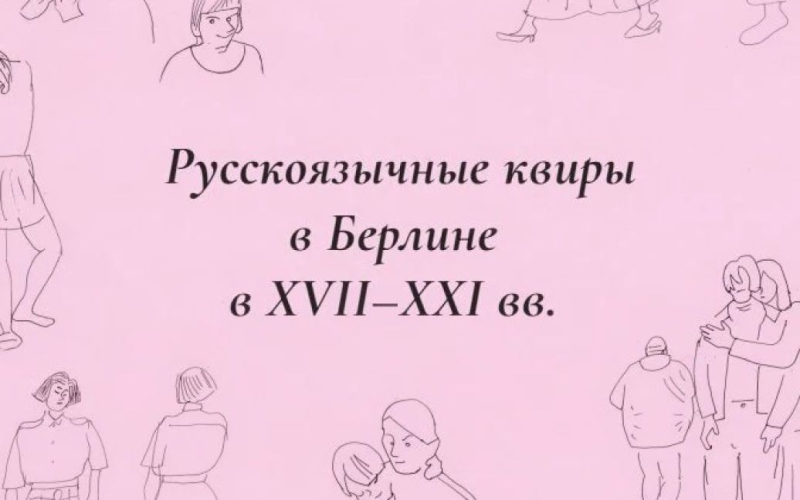< p>The authors of a historical study about the queer community of migrants in Berlin called the Ukrainian writer Russian-speaking.
Russian migrants in Germany released a book under title “Russian-speaking queers in Berlin in the 17th-21st centuries”, which contains an article about the outstanding Ukrainian writer Lesya Ukrainka.
Belarusian journalist Nastya Zakharevich reported this on her page on the social network Facebook.
The authors of the book cite Lesya Ukrainka’s correspondence with Olga Kobylyanskaya as an example and “an important reminder of lesbian sensuality.”
“Here you fight all your life for your – Ukrainian – language, and then fashionable Berlin people will still call you Russian-speaking. Especially when they again try to destroy your nation, claiming that your language is not real,” commented on the content books by Zakharevich.
One of the authors of the book is the co-founder of the Quarteera organization Vanya Kilber. It was Quarteera that published this edition last year.
“Quarteera is a community of LGBTQ+ people who live in Germany and communicate in Russian. Our task is to counteract multiple discrimination against queer people with migration experience,” says the organization’s website.
After the scandal, the Quarteera organization published an open letter in which they apologized for the lack of caution that hurt people's feelings.
“We deeply apologize to everyone whose feelings we hurt. We are sorry that one of our brochures hurt people's feelings. We were not careful enough with some of the wording and we lacked sensitivity. As a result, we did not do enough cautiously. We acknowledge this mistake and take responsibility for it,” the letter says.
The authors noted that in the book Lesya Ukrainka is mentioned as “a Ukrainian writer and participant in the national liberation movement and a symbol of the struggle for the independence of Ukraine.”
“When we talk about “Russian-speaking” people, we mean that the Russian state, from the 16th century to this day, has been a colonial empire that has captured many peoples and countries. Russian-speaking queers in Berlin belonged to different cultures : Russians, Ukrainians, Jews, Germans, Azerbaijanis, etc. The Russian language was one of the languages for them in their homelands and the lingua franca in Berlin. In connection with the war unleashed by Russia, we consider it important to emphasize that neither its history nor the history of queer people. “people in Berlin are not reduced to the history of the “titular nation” (this formulation is racism),” the organization explained their position.
Let us remember that Lesya Ukrainka was a real rebel, she did not like to be pitied, and lived the most eventful life possible. The poems of this famous poetess are filled with the theme of equal rights of women and men, passion for nature and love for the Motherland.
Related topics:
More news

